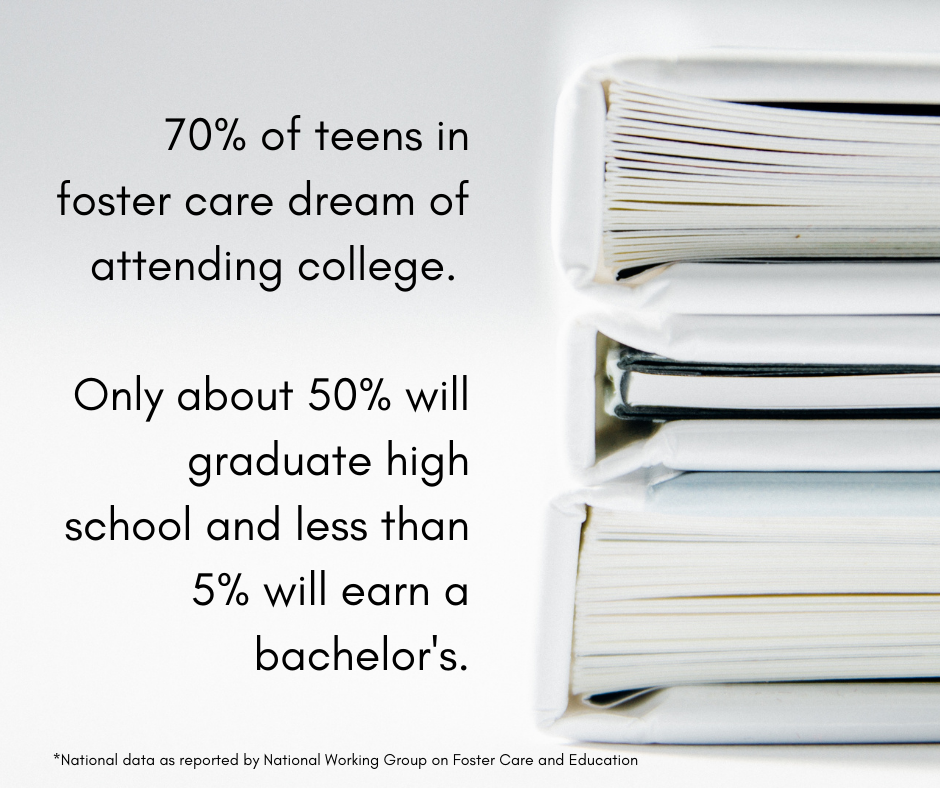Why Education Advocacy is Critical for Foster Youth
Youth in foster care face many educational challenges. When children enter foster care, many are already behind academically due to no fault of their own. Children may:
- Have chronic absences because they must look after younger siblings
- Live in homeless shelters, leading to missed buses or poor sleep
- Be preoccupied, worrying about their next meal or abuse in their homes
- Have unaddressed learning disabilities—35% of KidsVoice’s school-age clients receive special education services

These challenges too often lead to poor educational outcomes. While the majority of foster youth dream of attending college, only about 50% will graduate high school and less than 5% will earn a bachelor’s degree by age 26, according to studies.
This may also create gaps in social and life skills and limit career opportunities.
Advocating for children’s educational rights has been an integral part of our work since 2011, when our dedicated education team was established. We believe that every child has the right to a high-quality education so they can attain their dreams.
Our Education Advocacy
When a child is adjudicated dependent, meaning the juvenile court makes key decisions about the child’s life, such as where they will live, a judge may also appoint an educational decision maker for children who do not have adults in their lives who are able or willing to make such decisions.
Our advocates ensure that students with individual education plans (IEP) and 504 plans receive the support they are legally entitled to, as well as seek new or adjusted plans for clients whose needs are not being met under their current plans.
.png)
Each year, KidsVoice is the court-appointed Educational Decision Maker for hundreds of children in Allegheny County. We also advocate for specific educational needs of many more school-aged clients on a case-by-case basis.
Spurred on by disparities further exacerbated by the pandemic, KidsVoice expanded the Education Team in 2021. The team now includes a dedicated education attorney representing each of the five county regions and a specialized education support staff member.
Education attorneys address matters including enrollment in school; attendance; advocating for discipline that is equitable and reasonable; and ensuring students receive appropriate support for their learning, physical, behavioral, and mental health needs.
If we recognize that a student with an IEP or 504 plan has not received the support they are legally required to receive, such as during the pandemic, we may seek compensatory services. A team of pro bono partners helps administer educational trusts if one is established as a result of our advocacy.
Our supporters allow us to develop these new programs and help improve children’s attendance, grades, and graduation rates.
Stay Informed
Never miss an update! Sign up for the KidsVoice newsletter to learn about upcoming events, announcements, donor and volunteer opportunities, and current initiatives.

